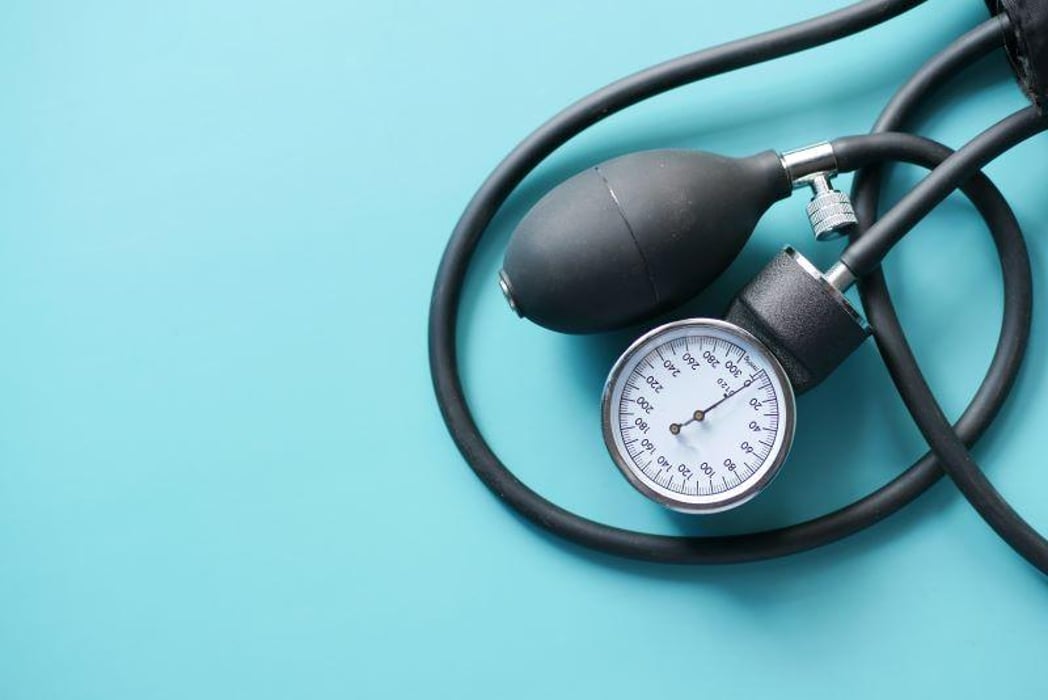One Form of Menopause Hormone Therapy Might Raise Blood Pressure

MONDAY, June 5, 2023 (HealthDay News) -- Women who use estrogen to ease menopause symptoms may see their blood pressure rise — but the way they take the hormone may determine that, a large new study suggests.
The study, of over 100,000 menopausal women on estrogen therapy, found that pills seemed to have a greater effect on blood pressure than estrogen delivered via skin patch, gel or vaginal preparation.
Experts stressed that the extra risk was modest, and the findings should not worry women who are already taking oral estrogen with no problems.
"People take hormone therapy for a reason," said senior researcher Dr. Sofia Ahmed, a professor at the University of Calgary's Cumming School of Medicine, in Canada. "The last thing we want is to scare them away from an effective therapy."
Instead, Ahmed said, women and their doctors should consider their blood pressure when deciding on the form of hormone therapy that's best for them.
Hormone therapy is considered an effective treatment for troublesome hot flashes and night sweats caused by menopause. It works by countering some of the estrogen loss spurred by menopause.
But the therapy has also been linked to some serious health concerns, including an increase in the risk of blood clots, stroke and breast cancer. The picture is complicated, however. There is evidence that when women start hormone therapy at a relatively younger age (before age 60 and within 10 years of menopause), they may not see any ill effects on their heart health.
Plus, studies have suggested that estrogen applied to the skin — usually by a patch or gel — might carry less risk than oral estrogen.
As it stands, the majority of women already do start with skin-delivered hormone therapy, said Dr. Stephanie Faubion, medical director of the North American Menopause Society and director of the Mayo Clinic Center for Women's Health.
She noted that cost sometimes sways a woman's choice, and oral estrogen is the cheapest delivery route.
But, Faubion said, skin-delivered hormone therapy is recommended over tablets for women with risk factors for heart disease and stroke — like obesity, diabetes and high blood pressure.
When estrogen is taken orally, it's metabolized by the liver, whereas the skin route avoids that "first pass" through the liver, Faubion explained. That may lessen the hormone's effects on clotting, triglycerides (a type of blood fat) and blood pressure.
But while there has been reason to believe that non-oral estrogen is better for blood pressure, the new study is the largest to look at the question, Ahmed said.
The findings, published online June 5 in the journal Hypertension, are based on records from over 112,000 Canadian women aged 45 and up who used estrogen-only hormone therapy between 2008 and 2019. (Hormone therapy can be taken as estrogen alone, or combined with progesterone.)
Most women — three-quarters — used non-oral forms of estrogen. Overall, their risk of being newly diagnosed with high blood pressure was lower: Women on oral estrogen had a 19% higher risk than those on vaginal estrogen, and a 14% greater risk than those using skin-delivered estrogen.
The duration of estrogen therapy also seemed to matter. The more years a woman used estrogen, the more likely she was to develop high blood pressure. That link, though, was seen regardless of the route of use, and Ahmed said it might not reflect an effect of hormone therapy, per se: It's possible women with prolonged menopause symptoms may have a greater risk of high blood pressure.
Faubion pointed to the role of aging. "The risk of high blood pressure is primarily dictated by age, rather than hormone therapy use," she said.
What's important, both doctors said, is that a woman's hormone therapy be personalized.
Ahmed recommended that women and their doctors discuss the whole picture — not just their menopause symptoms, but their cardiovascular health, bone health, family history and what's important to them in terms of quality of life.
"It has to be an individualized decision," Ahmed said.
Faubion agreed. She also noted that the standard advice used to be that women use hormone therapy at the lowest dose, and for the shortest amount of time, necessary to ease menopause symptoms.
But that has changed. "Rather," Faubion said, "[we] suggest an individualized approach based on ongoing need, annual review of risks and benefits, and a woman's personal preferences."
More information
The American College of Obstetricians and Gynecologists has more on hormone therapy for menopause.
SOURCES: Sofia Ahmed, MD, professor, Cumming School of Medicine, University of Calgary, Calgary, Canada; Stephanie Faubion, MD, MBA, medical director, North American Menopause Society, Pepper Pike, Ohio, director, Mayo Clinic Center for Women's Health, Rochester, Minn./Jacksonville, Fla.; Hypertension, June 5, 2023, online
Related Posts
Un panel de la FDA reevaluará el mérito de un descongestionante que muchos califican de inútil
LUNES, 6 de marzo de 2023 (HealthDay News) -- Hace años que los consumidores...
Your Morning Cup of Coffee Can Affect Your Heart’s Rhythms
https://consumer.healthday.com/11-15-coffee-can-af... Credit: HealthDay
Pfizer, Moderna COVID Shots Work for Kids Under 5, FDA Says
MONDAY, June 13, 2022 (HealthDay News) -- Antibody levels suggest that three...
